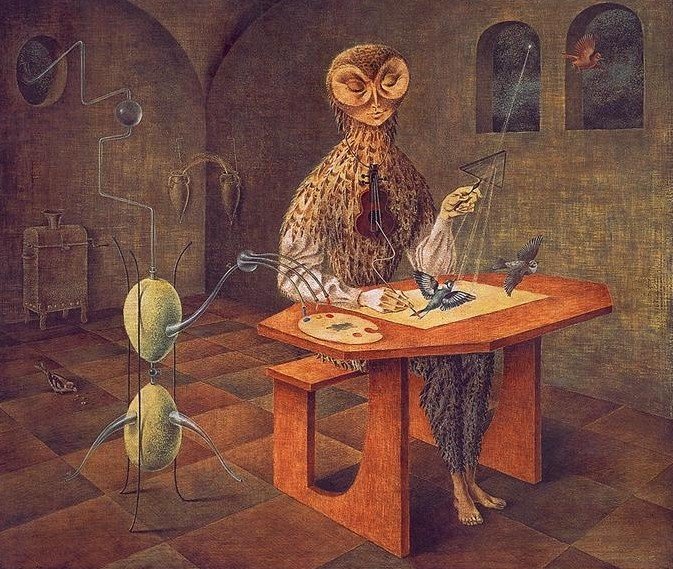Root Tender
Sara wrinkles her nose at the town biddies who declare that winter greens need not be picked until first frost. Pick ‘em when they ask to be picked, says she. Sara, who has won so many gardening contests, people no longer seek her participation. Because of her taciturn responses and general failure to share her magic, she is no longer sought after for growing tips or even advice. It is a social thing, she decides. They are not seeking truth. That suits me just fine; she confides to the vegetables and surrounding fruit trees. Fine. Fine. Fine.
Standing in her vegetable garden bed, she speaks softly, then cuts off a kale leaf as wide as a grown man’s head, brushes it against her gingham skirt to loosen the dirt bits buried deep within the dark green crevices, and thrusts it into the cloth bag slung over her shoulder. This is the part she loves best—the whispering. Asking the plants which ones choose to be picked, and which will be the tastiest. She murmurs to leaves the color of deep myrtle, erect and sturdy. You or you? Are you ready? Want to come with me? She moves about, crooning and picking. A good harvest, this kale. They’ll make a good accompaniment to the pot of white beans simmering over the hearth at the house. How PJ loves her bean soups! She makes a point to vary the soups she prepares adding a new spice here or throwing in a chunk of seasoned meat. This time, these greens. A whippoorwill calls overhead. She listens, scanning the cloudless grey sky. The crisp air signaling autumn’s graduated exit. An echoed mating response fills the air. She decides that the soup will be a healing potion. The trees surrounding her greening patch stretch and arch as though waving good morning. The breeze cools her forehead, underarms, and, back where the wetness has gathered. She soldiers on, alternately picking vegetables for supper using a small gardening knife and pulling up weeds (the latter she collects in a little mound next to her legs.) A sharp pain follows each bend of her waist, as the memory of yesterday’s drama rises in her throat.
Ma PJ arrived at the house yesterday morning, in a churlish and excitable state. Sara had taken to her bed earlier—at the unwelcome sight of those first few drops of blood. The doctor she summoned never came. Ma PJ had gotten word of her ailment and had come in his stead. Sara was treated to her mother-in-law’s running discourse on women who can’t hold their pregnancies. Ma PJ expounded on the list of all the reasons she knew for a woman’s failure to hold her pregnancy (pausing after each reason to glare at Sara with arched eyebrows):
1. Staring at the moon
2. Viewing a deceased person
3. Having an owl sleep under your roof
4. Raising your arms continuously above your head
5. Having amorous congress with your husband (while being in the ‘family way’)
6. Moving your bed about the room
Out, out, out! In Sara’s mind’s eye, she conjured up the strength and will to grab Ma PJ by the scruff of her neck and cast all six feet of her out the front door—much in the same manner as her womb seemed to oust each of her short-lived attempts to nurture precious life implanted within her. Out! Instead, Sara pulled the covers over her head, placed hands over her ears, rocked and moaned until the storm in her womb quieted, and the flow of blood from her body slackened.
Ma PJ gathered Sara in her arms, humming a lullaby, low and easy. Somehow, Ma PJ changed the bed sheets, though Sara felt held close all the while. Sara exhaled, relaxed and allowed Ma PJ to pass a warm, moist cloth across her forehead, and along her neck. Her mother-in-law dipped the cloth in lavender-scented water and continued bathing Sara like a young babe, still humming. Ma PJ knew exactly what she, Sara, needed. Sara slept.
Because it is now late morning and PJ is in town and working, because his work is defined by a shadow-guise they never discuss, because Sara’s present need is frenzied and insistent, because these reasons and a thousand more crowd her head too quickly to be enumerated, she folds onto the ground near her kale-pile, the same earth in which her vegetables thrive, and, dampens it with hot tears. A possibility has seized her heart: she may never produce a child to call her own.
Initially, the only sounds are her own soggy breaths. She breathes in the fertile soil she covets. With closed eyes, she senses an ‘otherness’ in her space. There’s a cooing sound and then harsh raspy breathing. An icy finger runs up her spine. Her muscles tense in anticipation. She opens her eyes expecting to be confronted by some feral creature. Instead, a burled wooden box, slightly larger than the tiny coffins PJ fashions each time her womb fails, sits a few feet away. Inside, she hears noises like those of a moribund old man. Startled, she crawls forward on hands and knees and peers into the box at a tiny translucent-skinned being with a shock of black hair. She grasps at it, eager to gather it, hold it to her chest, comfort, and nurture it. Her hands slip through the air as the rasping turns to a chortle. The disappearing vision eludes her reach, mocking her empty arms.
Joanne Godley
Joanne Godley is a devotee of fairy tales and speculative writing who lives in Mexico City. She is a physician, poet, writer, and MFA candidate in poetry at Pacific University. Her work has appeared or is forthcoming in FIYAH, Crab Orchard Review, The Massachusetts Review, among others. Her first poetry collection, How the Black Panthers Fell From the Sky, for which she won the 2025 Naomi Long Madgett award, will be published in 2026.
